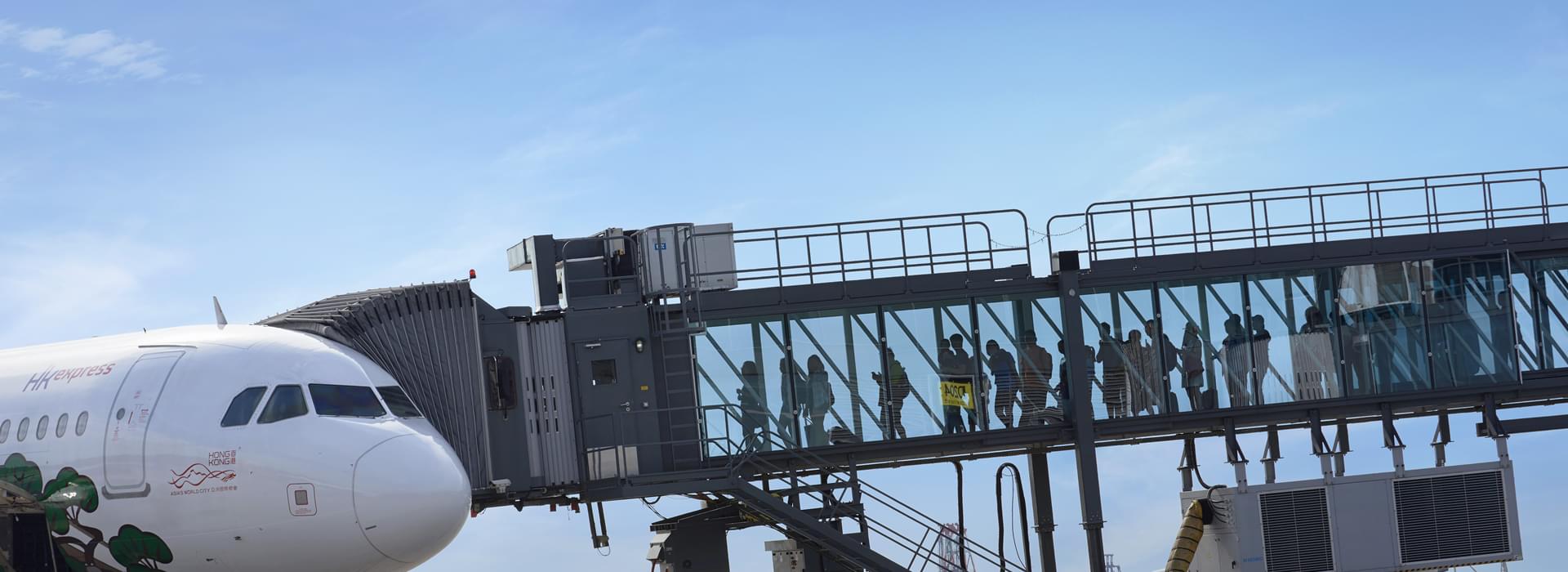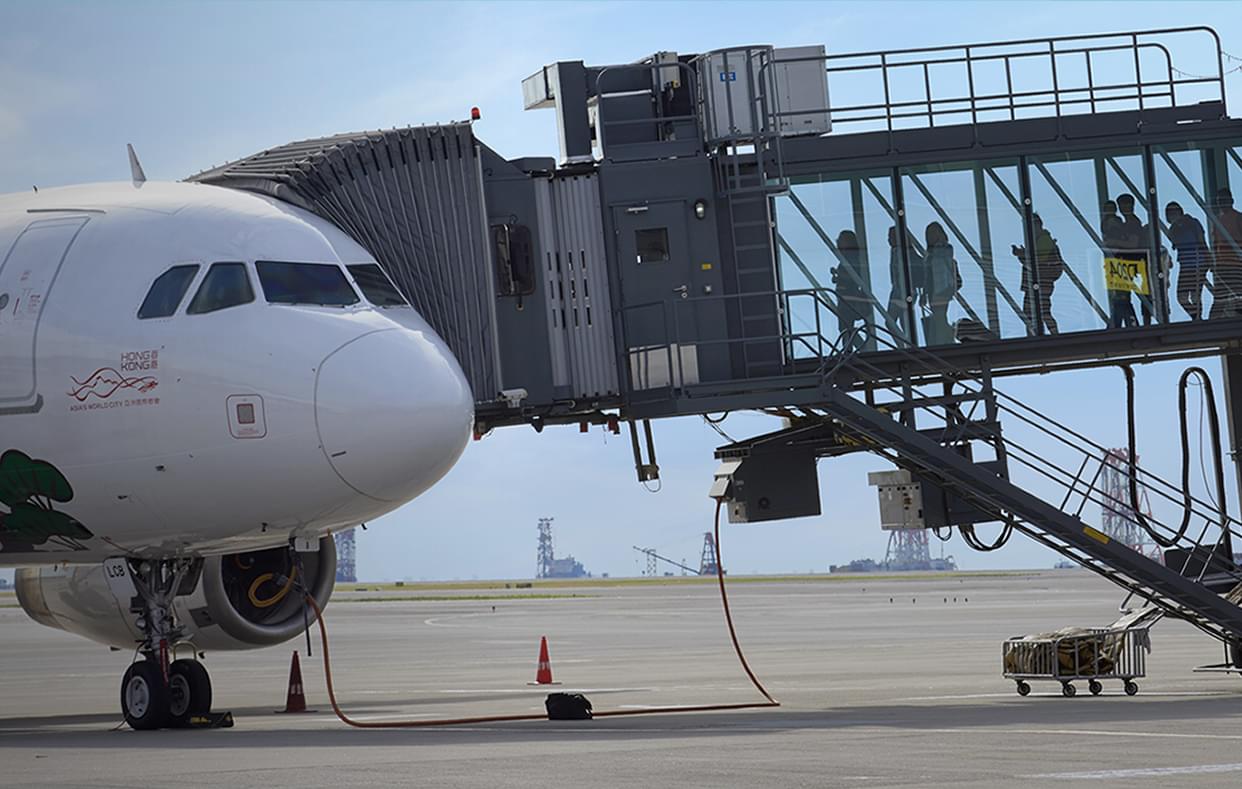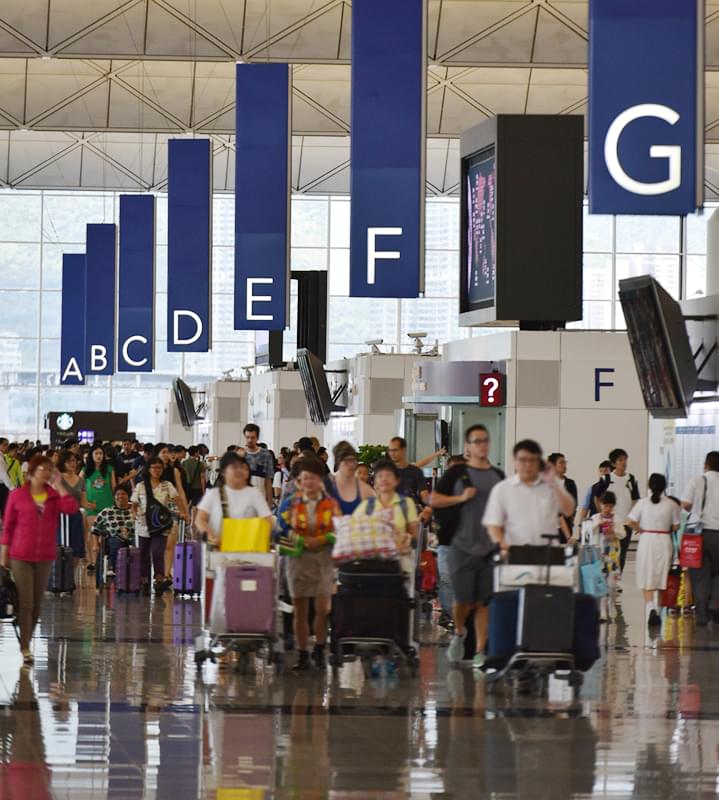

This is AAHK’s fifth annual sustainability report, covering the fiscal year 2016/17 that ended 31 March 2017. It provides a comprehensive account of AAHK’s sustainability performance and management approach in 2016/17 and a summary of its future plans and targets for key areas of sustainability.

This report mainly covers AAHK’s core business in Hong Kong over which it has direct management control. It does not include information on AAHK’s joint ventures in the Mainland. However, reference is made to AAHK’s subsidiaries and outsourced operations where relevant. The report also explains how AAHK engages with its stakeholders and collaborates with its business partners in addressing sustainability issues and improving HKIA’s overall sustainability performance.
This report has been prepared in accordance with the GRI Standards: Core option. It also reports on the GRI G4 Airport Operators Sector Disclosures. Please refer to the ‘GRI Content Index’ for details, including references to the general and specific standard disclosures made in this report.
The performance data presented in this report covers the 2016/17 fiscal year unless otherwise stated. Where available, data for previous fiscal years has been included to facilitate comparison and analysis. The financial data used in this report was extracted from AAHK’s audited consolidated financial statements for the year ended 31 March 2017. Other data is provided in accordance with the GRI Standards disclosure requirements unless otherwise stated. Standards and methodologies for compiling the data, as well as explanations of any restatements, are given where appropriate.
In preparing our 2014/15 and 2015/16 sustainability reports, we conducted extensive stakeholder engagement as part of the materiality assessment process. Over 600 individuals were engaged through focus groups, interviews and online surveys to help determine sustainability issues that are important for HKIA. Building on the previous materiality assessments, and taking into account AAHK’s on-going engagement with stakeholders, we reviewed and consolidated the sustainability issues to be covered in this year’s report.
Please refer to the ‘Correlation between AAHK’s most important sustainability issues and GRI Standards’ in the GRI Content Index section for the definition of each material issue.


Boundary mapping for the most important issues:
Inside and outside AAHKInside AAHK only
* Issues that are no longer considered as ‘most important’ for AAHK to address in this report.
** Issues that are key areas in AAHK’s business plans, and hence newly considered as ‘most important’ to be covered in this report.
The four key pillars below detail how we are managing the various sustainability issues that have been identified as most important to AAHK and our stakeholders. Each pillar outlines the progress made and specific actions taken during the reporting year, and any future plans and commitments.
This report has been produced in a web-based format and makes use of different features, such as dynamic graphics, videos, and interactive charts, to increase its accessibility and enhance the reading experience.
We have also produced an eight-page highlights that offers a snapshot of AAHK’s sustainability performance in 2016/17.
This report has been independently verified by the Hong Kong Quality Assurance Agency. Separately, AAHK’s greenhouse gas emissions data, as disclosed in this report, has been independently verified by TÜV Rheinland Hong Kong Ltd.
We welcome your feedback on AAHK’s sustainability management approach and performance. Please fill in the online feedback form or contact Mike Kilburn via: